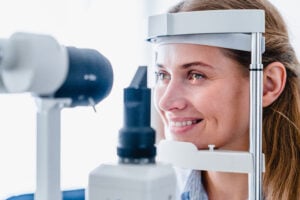What are stem cells?
Stem cells are groups of cells in our body that perform certain functions to help us survive. They are essential raw materials and can be found in our skin, make up bone and cartilage or move around the body in our bloodstream.
There are several types of stem cells. Embryonic stem cells, for instance, multiply and grow in the womb. These are not used in any treatment procedures.
Adult stem cells are found outside the womb and can divide into bone, cartilage, nerves, and muscle tissue. They are often used to regenerate damaged tissue. In some cases, the cells are used directly for treatment. They may also be harvested and then manipulated and grown in the laboratory. These manipulated cells are used for research and cannot at present be used for treatment in the UK or Europe.
How do stem cells work?
Stem cells can be ‘encouraged’ under laboratory conditions to become different cell types, such as bone or muscle. They can then be inserted into the body to help regenerate a specific area. This can help with degenerative conditions such as arthritis.
Recent research has revealed that the new cells don’t necessarily replace the older cells but rather ‘marshal’ the injured tissue to regenerate.
Common conditions treated
Stem cell therapy can be used to treat a variety of conditions such as the following:
- Orthopedic conditions are commonly treated with stem cells, particularly for repairing hip and knee joints when combined with other treatments such as physiotherapy.
- Parkinson’s disease can be alleviated by using stem cells to repair nerve damage. Recent research has shown that stem cells can help replace the dopamine-producing brain cells the disease destroys.
- Heart disease, including large or small vessel disease can be treated by using stem cells to repair damaged tissue in both the heart itself and the blood vessels.
- Cancer can sometimes be treated with stem cells. One long-standing application is in treating leukaemia patients and those who have lymphoma.
- Multiple sclerosis is a degenerative neurological disease, and stem cells can be used to repair brain lesions and boost brain cell health. Stem cells can also be used to rebuild the immune system.
- Kidney disease – both acute and chronic – can be treated by replacing damaged cells with stem cells.
- Cells in the pancreas (known as beta cells) that produce insulin can be replaced or regenerated.
They can also help with conditions like spinal cord injuries or surface conditions, such as burns. Furthermore, stem cells can replace ‘misfiring’ cells such as cells that send pain signals for no reason. They can also help reduce inflammation.
What is the evidence for stem cell therapy?
Doctors worldwide have performed stem cell transplants to replace bone marrow for a number of years now. According to the The Worldwide Network for Blood and Marrow Transplantation (WBMT), over a million stem cell transplants have been performed to date.
Adult stem cells or those taken from umbilical cord blood can be used to help fight diseases such as cancer, multiple myeloma and leukaemia. In fact, more than 70 malignant and non-malignant diseases are commonly treated with a stem cell transplant.
Common controversies and misconceptions
There are many ethical issues surrounding the use of embryonic stem cells, which is why their use in treatment is banned in many countries. However, they are widely used in research in the USA and other countries. These cells are derived from eggs fertilised at an in vitro fertilisation clinic but not implanted in a woman’s uterus.
In some instances, embryonic stem cells can trigger an immune response. The body sees the new cells as a foreign invader and sets out to destroy them. This can lead to a worsening of the illness.
Notable clinics offering Stem Cell Therapies in the UK
The private stem cell market in the UK has expanded in recent years, and today more than 70 private providers are offering stem-cell treatments for painful joints. Here are a small number of reputable clinics in London offering stem cell therapies of different kinds.
Centre for Stem Cells & Regenerative Medicine
Based in Guy’s Hospital, London, the Centre studies diseases such as diabetes, skin fibrosis and acute liver failure. It also hosts a ‘Stem Cell Hotel’ where dedicated laboratory space is provided for collaborative studies.
Life Plus Stem Cells
Based in Welbeck Street in London, the clinic’s USP is that it uses cells multiplied to more than 20 times their original concentration; therefore, it claims to provide better, more effective results.
The Regenerative Clinic
Based in Thayer Street, London, the clinic specialises in regenerative treatments for orthopedics and sports injuries, arthritis, facial aesthetics and gynaecological conditions.
It’s important to note that while there is growing evidence into the effectiveness of stem cell treatment for conditions like multiple sclerosis, many treatments are still without complete clinical trials and are therefore considered to be in the experimental stage. It is essential to discuss all potential risks from stem cell therapies with your treatment provider.
Medical Travel Market will soon be launching agency services to connect you with leading private hospitals and clinics. Sign up to stay informed.













